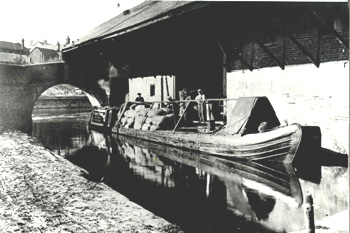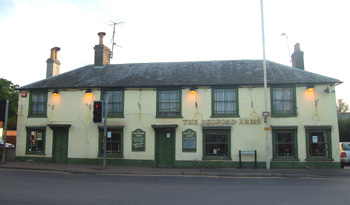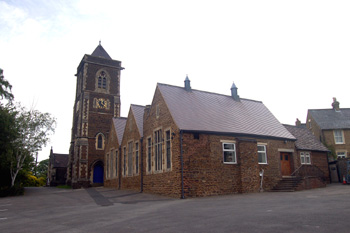Chelsea

Canal Barge at Brantom's Wharf about 1900 [Z50/74/26]
The modern town of Linslade developed in the early 19th century following the opening of the Grand Junction Canal in 1800. The canal brought wharves to serve the market town of Leighton Buzzard and the wharves brought workers and cottages. Until that point Linslade had consisted of just two small settlements, the largely deserted medieval village of Old Linslade to the north and the hamlet of Southcott to the south. The new cottages occupied small roadside plots along Soulbury Lane on the edges of closes.
This new development was in an area then known as Chelsea, later also as Chelsea New Town and New Linslade. The name is Old English and means "a landing place for chalk or limestone" but it is not clear from records in Bedfordshire & Luton Archives & Records Service whether this was the ancient name for this area of the parish or a more modern one, perhaps based on the more famous Middlesex settlement of the same name.

Bedford Arms June 2008
One of the first structures built which still survives was the Bedford Arms, then called the Corbet Arms, some time before 1830. The canal was the first impetus to settling Chelsea, but the opening of what is now the West Coast Main Line (then the London & North Western Railway Company's line) through Linslade in 1838 greatly increased development.
If Soulbury Road was the site of the first developments in Linslade it was quickly followed by New Road and Church Street, Saint Barnabas Church and a National School adjoining it being built in 1849. The railway inspired development was noted in the Leighton Buzzard Observer of 10th August 1869, in the usual florid prose of the period: "During succeeding years the traffic upon the iron road, resulting from the increased trade and commerce of the country, caused the small village of Linslade to assume almost the proportions of a town, and the population became so much enlarged that a want of accommodation began to be felt in the church on the Sabbath".
 Saint Barnabas church and former National School June 2008
Saint Barnabas church and former National School June 2008